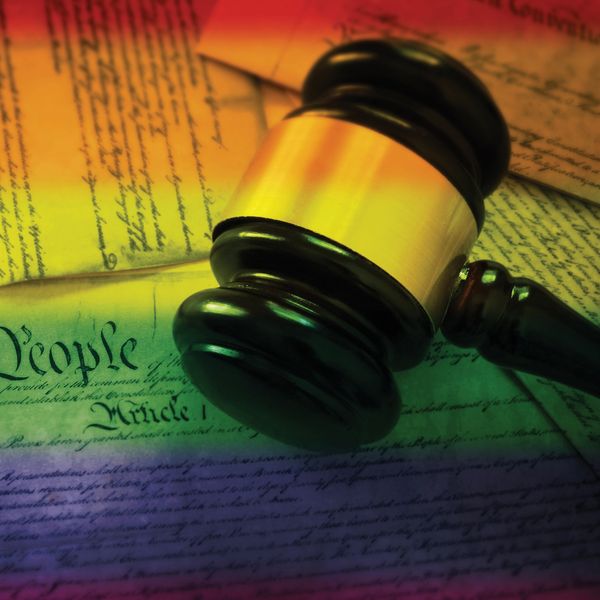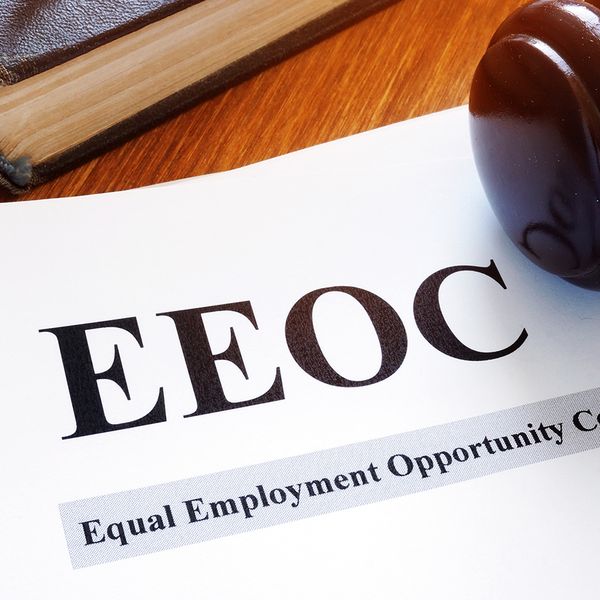A year post-Bostock, EEOC provides technical assistance document
Since the U.S. Supreme Court’s June 2020 decision in Bostock v. Clayton County, the Equal Employment Opportunity Commission (EEOC) seems to have determined some employers still don’t understand what the ruling means.
As a result, the agency published a technical assistance document on June 15.
The document reviews the Bostock decision, which the EEOC calls: “Just a clarification of the agency’s long held view that the prohibition against sex discrimination in Title VII of the Civil Rights Act of 1964 includes employment discrimination against an individual on the basis of sexual orientation or transgender status.”
EEOC answers FAQs
The EEOC guidance document addresses some specific questions employers might have, including:
Q. Is an employer allowed to discriminate against an employee because the employer believes the employee acts or appears in ways that do not conform to stereotypes about the way men or women are expected to behave?
A. No. Whether or not an employer knows an employee’s sexual orientation or gender identity, employers are not allowed to discriminate against an employee because that employee does not conform to a sex-based stereotype about feminine or masculine behavior. For example, employers are not allowed to discriminate against men whom they perceive to act or appear in stereotypically feminine ways, or against women whom they perceive to act or appear in stereotypically masculine ways.
Q. May a covered employer require a transgender employee to dress in accordance with the employee’s sex assigned at birth?
A. No. Prohibiting a transgender person from dressing or presenting consistent with that person’s gender identity would constitute sex discrimination.
Q. Does an employer have the right to have separate, sex-segregated bathrooms, locker rooms, or showers for men and women?
A. Yes. Courts have long recognized that employers may have separate bathrooms, locker rooms, and showers for men and women, or may choose to have unisex or single-use bathrooms, locker rooms, and showers. The Commission has taken the position that employers may not deny an employee equal access to a bathroom, locker room, or shower that corresponds to the employee’s gender identity. In other words, if an employer has separate bathrooms, locker rooms, or showers for men and women, all men (including transgender men) should be allowed to use the men’s facilities and all women (including transgender women) should be allowed to use the women’s facilities.
Q. Could use of pronouns or names that are inconsistent with an individual’s gender identity be considered harassment?
A. Yes, in certain circumstances. Unlawful harassment includes unwelcome conduct that is based on gender identity. To be unlawful, the conduct must be severe or pervasive when considered together with all other unwelcome conduct based on the individual’s sex including gender identity, thereby creating a work environment that a reasonable person would consider intimidating, hostile, or offensive. In its decision in Lusardi v. Dept. of the Army, the Commission explained that although accidental misuse of a transgender employee’s preferred name and pronouns does not violate Title VII, intentionally and repeatedly using the wrong name and pronouns to refer to a transgender employee could contribute to an unlawful hostile work environment.
Title VII applies to private-sector employers with 15 or more employees, to state and local government employers with 15 or more employees, and to the federal government as an employer. Title VII also applies to unions and employment agencies.
What about a religious exception?
Title VII allows religious organizations and religious educational institutions (those organizations whose purpose and character are primarily religious) to hire and employ people who share their own religion. In other words, it is not unlawful religious discrimination for a qualifying employer to limit hiring in this way.
Courts also apply a ministerial exception that bars certain employment discrimination claims by the employees of religious institutions because those employees perform vital religious duties at the core of the mission of the religious institution.
Courts and the EEOC consider and apply, on a case by case basis, any religious defenses to discrimination claims under Title VII and other applicable laws.




















































